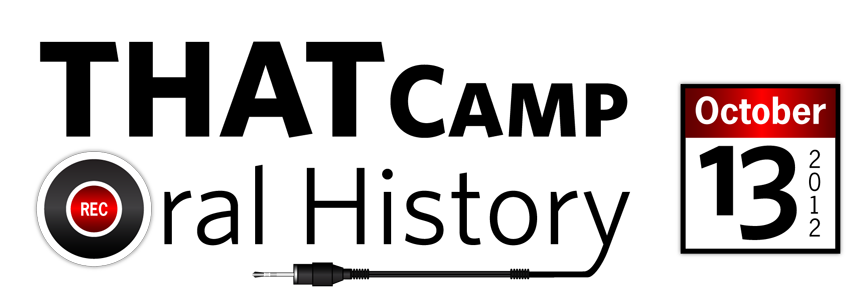I’m a volunteer at the Oberlin Heritage Center in Oberlin. I’ve been collecting video interviews for over 20 years and would like to discover ways to save these in our collections in usable formats. We also have an extensive collection of analog audio tapes that we want to transfer to digital format efficiently. We do have a number of volunteers and an active oral history committee.
I would be comfortable talking about my experience interviewing individuals on video and video editing but would like to exchange info about the process of digital archiving and switching to new digital recording format.

Sounds like a good session. I think there are several challenges here.
The first is the process of (re-) encoding interviews in a digital format (which of course involves time, resources, etc).
The second is doing so in a way that is as future-proof as possible, especially in regards to web standards. Web formats for
audioandvideoare still sort of up in the air, with some browsers supporting MP3 and M4V, while others support OGG, WEBM, etc. Unlike images, you need multiple versions for different browsers (unless you use Flash, then you block out most mobile devices).We generally store our media in uncompressed formats, which is probably overkill in terms of fidelity (especially for audio). It’s not a bad idea, but it definitely adds a layer of processing for any sort of online projects.
It would be great to have a system like NPR’s Create Once, Publish Everywhere (COPE), which not only separates content from design, but also separates content from presentation across multiple instances.
So in the case of web media, such a system might take the digital archival copy and create web-friendly versions on demand as needed for different projects. Sounds doable actually, given the right circumstances.
… I may be getting carried away. 🙂
I can relate to these challenges, which are daunting enough in an institutional context, but even more so for all-volunteer projects. What I know in terms of current industry standards, archiving best practices, project management, etc., are all fine if I have the resources to accomplish. But with participatory/volunteer-based projects, how can I ensure sustainability? I’d love to hear more about your project and how small projects/groups can navigate through these problems.